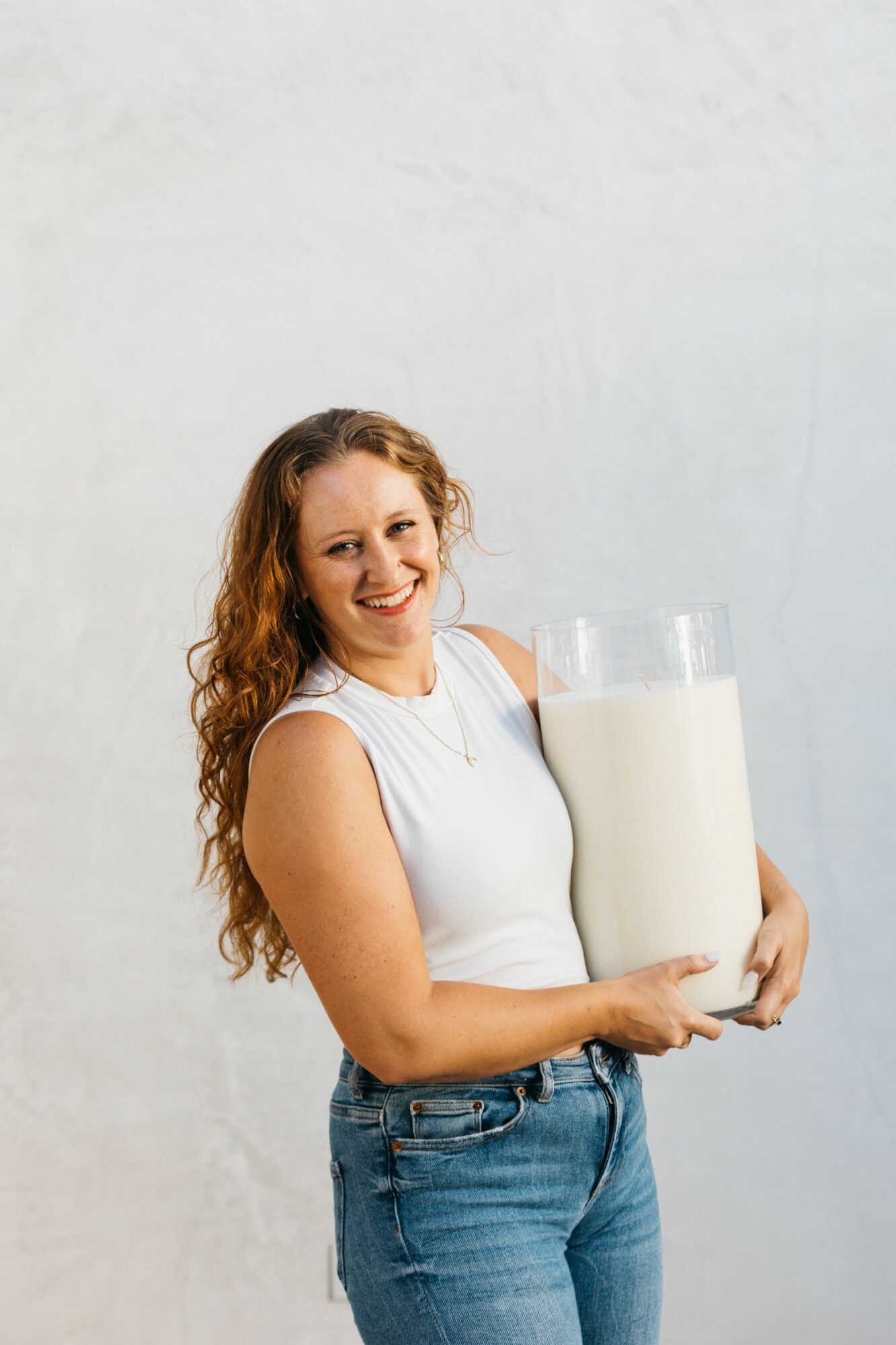

We recently had the chance to connect with Julie Kesler and have shared our conversation below.
Julie, we’re thrilled to have you with us today. Before we jump into your intro and the heart of the interview, let’s start with a bit of an ice breaker: What do you think others are secretly struggling with—but never say?
This is such an interesting question because if personal experience tells me anything, it’s that one of the biggest things we collectively as a society struggle with is figuring out and empathizing with what other people struggle with.
There’s this sentiment, at least in the cultures I’ve lived in, that says if you don’t know that other people are trying to figure it out, too, it may be shameful (or embarrassing, too revealing, might expose me as the fraud I secretly believe I am) if you ask other people if they ARE struggling with something as well. On the one hand, reaching out a hand to get information could seem aggressive to people, offensive because it could come off as you not viewing them as competent. On the other, if you don’t get a vehement-yes response, get ready to watch your self-image flush down the drain.
I think one of the things I’ve grown in my career is a general, if not absolute, willingness to look like the dumbest person in a room and ask the seemingly Very Stupid Questions in a nonthreatening way. More often than not, I’ve found that to be the single most effective tool in building empathy, shared knowledge, and camaraderie amidst a group of otherwise incredibly smart, and possibly nervous but never would tell you so, people.
Can you briefly introduce yourself and share what makes you or your brand unique?
TL;DR: I’m a recovering workaholic that has traded one vice (workaholism) for a new vice (candles and still workaholism, but more expensive and I get to be my own part-time boss). I believe wholeheartedly in leveraging business as a way to improve people’s lives.
I lead a double life that would make Hannah Montana jealous — by day, I’m an AI Data expert, doing niche, yawn-inducing metadata collection that is foundational to making AI work correctly, ethically, and responsibly. If you think of AI as Pac-Man, I’m the one who lays out the Pac-Dots. Ever wondered how an AI learns to differentiate whether to use an em-dash or a colon? That’s me, hi, I’m the problem. I recently joined a budding Engineering AI startup, P-1 AI, headed by Paul Eremenko, the former CTO of Airbus, alongside a fistful of other brilliant and groundbreaking engineers. We’re working on a solution for smarter engineering design, which right now means HVAC, but someday *could* mean Starships. 🖖
In case you’re still awake… nights, weekends, and in any spare minute between meetings and work tasks, I am Second Life Candles.
Second Life really boils down to three things:
1) People are just people, and we’re a lot more alike than we often realize, and we should think about that more and connect more.
2) We need to think about the impact of things we do and be part of the solution.
3) Things that smell good make your life generally better and often more tolerable.
Second Life is about second chances. Second uses. Second places. And, yes, second lives. So many of us have had transformations, turnovers, re-do moments, bounce-backs, that the idea of a Second Life speaks universally.
It started off as reusing old, discarded vessels and reviving them as candles. I was so surprised by how many people would see a vessel and immediately connect to it — be it a piece of pottery, a crystal glass, an Ikea mug, a mason jar. I loved getting to hear the stories of why someone latched on to that particular piece or that particular fragrance. Few things will elicit a story as effectively as a nostalgic bit of china or the smell of your grandmother’s flower garden. Once, I had a person who had an old vase that her mother owned fall and break, and she spent months googling this very specific piece of pottery that looked like a scalloped sprinkle lemon cake. She found its exact twin — which I had thrifted, candle-ified, and posted in my online store as a 32-oz lemon pound cake candle. She wanted it even though the top was chipped, and said it made her cry when she finally found it.
As we grow as a business, we’re leaning more and more into giving back financially to the community. As we see ourselves descending more and more rapidly into political chaos, it’s more important than ever to stay close and lift up those around you.
We do our best to put our money where our mouth is. For the majority of sales we do in person, we work with Wallflower Market LA to donate 10% of the revenue earned at markets to dozens of local charities and nonprofits doing imperative community work. Previously we’ve run charity lines for LGBTQ+ organizations, donating June proceeds from our limited-edition Pride candles to the Trevor Project and others. Currently, we have the LA Forever line, which is a set of four of our bestselling style items at varying price points, from which all REVENUE goes to charity — for every one of these units sold, we donate not just profits, but also the cost of goods AND shipping paid by the buyer to CHIRLA to help contribute to Immigrant support and legal representation. Our very proudest moment is that we recently launched a partnership with Good.Store on product lines that will donate all proceeds to Partners in Health, a charity building hospitals for maternal care in Sierra Leone.
All in all, we’re a community company first, and a candle company second.
Amazing, so let’s take a moment to go back in time. What breaks the bonds between people—and what restores them?
Fatigue, overwhelm, and fear.
We humans are all, unfortunately, only humans. We have limits. We have lives to lead and responsibilities to manage and people to care for. We can all only handle so much, and unfortunately, empathy requires a lot of energy. The busier we get, the more there is going on, the farther we become separated by titles and political groups and defensiveness and propaganda, the harder it is to make space to put yourself in another person’s shoes, upbringing, financial situation, mindset, value base, community, what-have-you. We’re so, so tired. And in a world where thoughtlessly doing or saying things wrong has real, tangible, and often life-altering consequences, being afraid is an ever-present part of how we interact. Fear of rejection, fear of being wrong, of invalidating our own existences by realizing we hold an opinion maybe we shouldn’t, and then what does that mean for your connection with family? religion? community? work?
And what unites us? Stories. This is why politics weaponize anecdotes of sometimes completely isolated incidents to rally people. We seem to be hard-coded for absorbing stories as allegories. People telling their stories breaks down the excuses we make for ourselves to continue “Othering” people we don’t know. You can hardly help yourself.
Our Shared Trauma line is based on this exact concept — what are the “stupid,” undeniable, nigh-universal struggles that we have experienced as a group, consciously or not? And what are the remedies?
Covid-19. Awful bosses. Capitalism. Politics. Layoffs. Purity culture. These aren’t things we experience in silos, even though they FEEL like we do. Ask anyone if they’ve had an awful boss and they’ll have a backlogged library of content for you to tap into at any time, comparing experiences, swapping tips, and commiserating over microcuts we receive from just the operation of living our lives. These aren’t just candles (though they are f***ing good candles), they’re conversation starters.
When you were sad or scared as a child, what helped?
This is so relevant to the topic of stories we tell — I was an aggressively obedient child. Some would have called me Lawful Good, I’m sure my younger brother would have called me Lawful Evil… I did my best to never mis-step in a way that could get me hurt or in trouble. Whether I was successful is up for debate. But on the rare occasion I did something ill-advised despite my mother’s pleading for her seventh child’s safety and ended up with a scraped knee, in hysterical tears in her lap, she would rock me back and forth and say “remember when…”
And then in the soothing voice only a mother of eight can achieve, she would recount story after story of something happy.
“Remember when we all went camping at the lake, and we allllll got to go swimming?”
“Remember when you had your birthday and we got to have your favorite cake?”
“Remember when your cousins came to visit and you made up dances in the basement?”
“Remember when…”
My mother is a masterful maternal force who dedicated the entirety of her life (and sanity) to the growth and success of her children. Experience and pain of her own told her that stories, memories of happy times, and sometimes just distracting your mind from the pain, is a reliable way to get through it. Invariably she would have me smiling, knees bandaged and wiping tears from my eyes, before handing me a glass of water and sending me for a nice post-cry nap.
To this day, I use this tactic. Whenever I find myself spiraling, in tears over some small or large cut to my skin or soul, I try to think of the times when things were okay to remind myself that they’ll be that way again.
Sure, so let’s go deeper into your values and how you think. Is the public version of you the real you?
Short answer: Yes.
Long answer: Yes, and…
This is an interesting question because I think every single person has multiple versions of a “real you.”
People are like pianos. Pianos have 88 keys, but practically infinite ways to express combinations of those keys that all result in very real expressions of what a Piano sounds like. Not every song calls for every key, and similarly not every situation calls for every facet of a person’s personality. Some crowds and demographics might call for gravity, some empathy, some deprecating humor, some quiet strength.
I think what this question is asking is, “are you genuine in public?” and the answer is that I couldn’t fake it if I tried. it’s generally pretty easy to spot someone whose personality comes off as falsified. Sometimes that’s for a good reason. But in the same vein, it’s palpable when a person is genuine. And also, I’m not a good enough liar, and I don’t have a good enough memory, to be artificial in the first place. It’s easier to just be whatever pieces of myself are right for the scenario.
Thank you so much for all of your openness so far. Maybe we can close with a future oriented question. Could you give everything your best, even if no one ever praised you for it?
I don’t think that everything we do deserves our best. I am a huge proponent for picking your battles and half-assing some things that are worth doing “well enough,” but not perfectly. Sometimes you’ll happen upon something that IS worth your best, and the fire in your belly and the reactions you get from other people are often the things that tell you when those arise.
Praise is a fickle thing. Not every good thing gets praised, but praise is also a critical method of feedback to help us know if what we’re doing is worthwhile. How can you tell that it’s worth doing if no one is impacted? Sometimes just knowing yourself is enough, but understanding the impact and being able to see positive outcome is a form of quiet praise in its own way. Not every achievement deserves a parade, a medal of honor, a billboard on Sunset, but a sincere “thank you” or a genuine smile counts as praise in my book, and tells me that the effort I put in was worth it to someone.
Contact Info:
- Website: https://secondlifecandles.co
- Instagram: https://www.instagram.com/second_life_candles
- Linkedin: https://www.linkedin.com/in/juliemkesler/
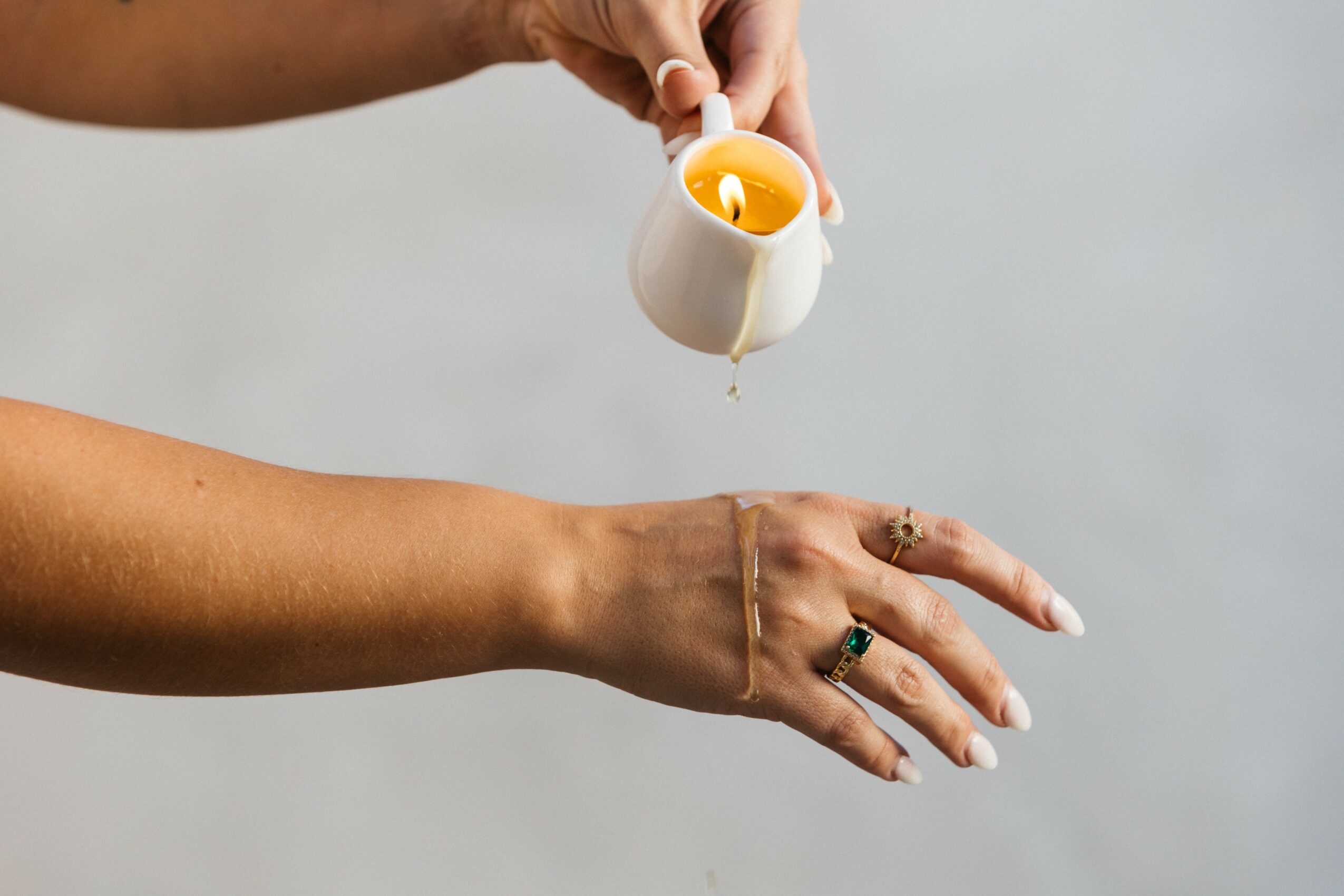
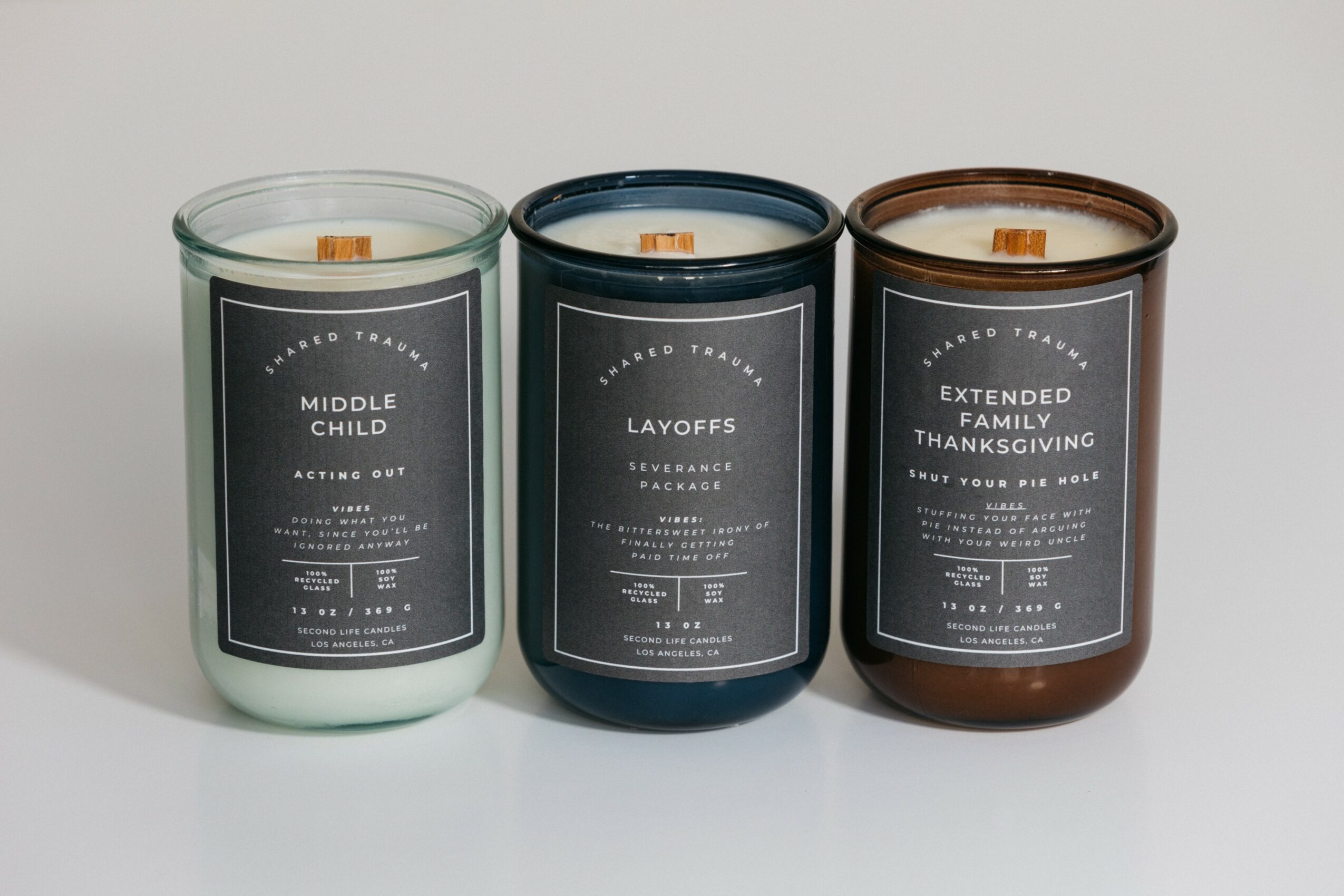
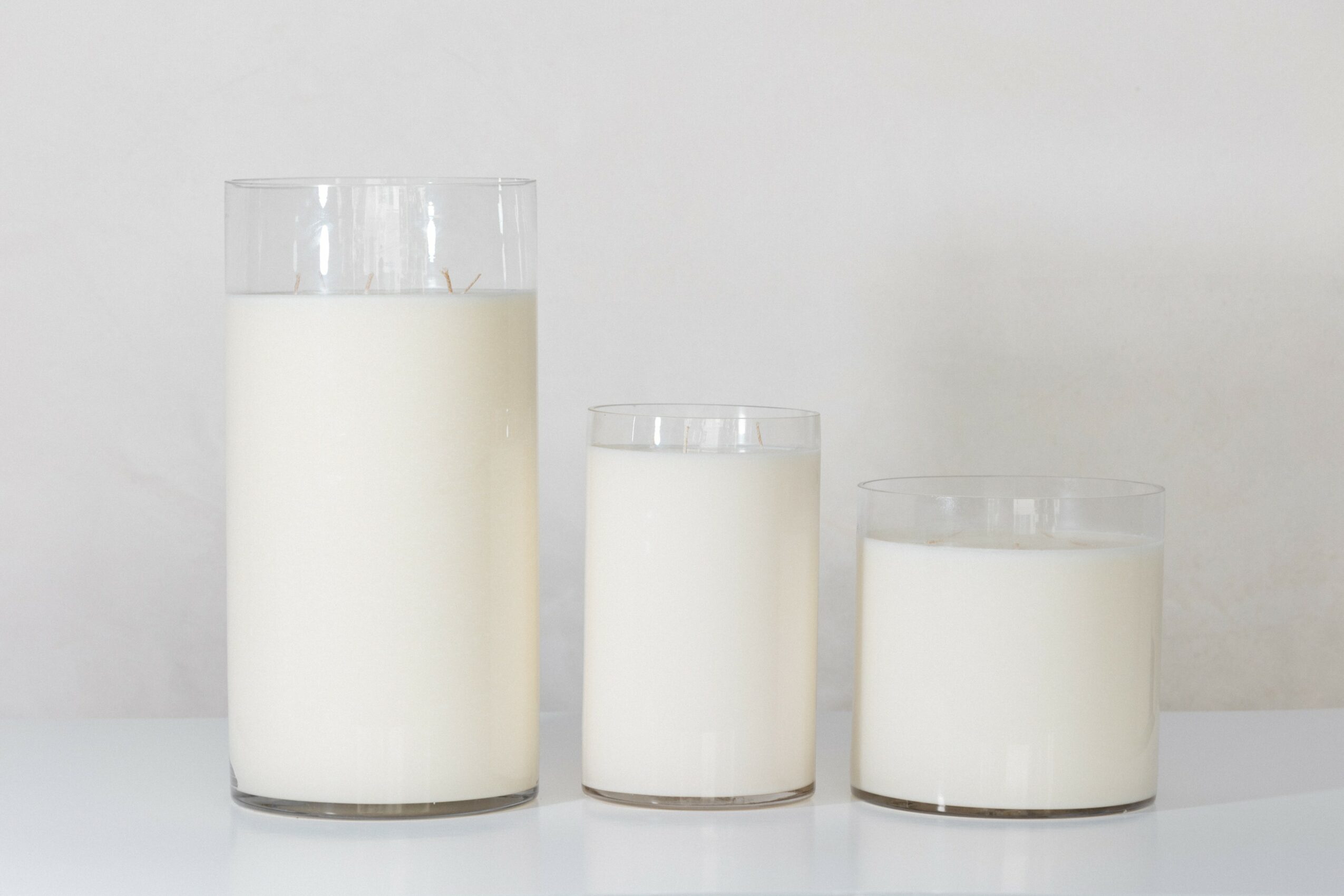
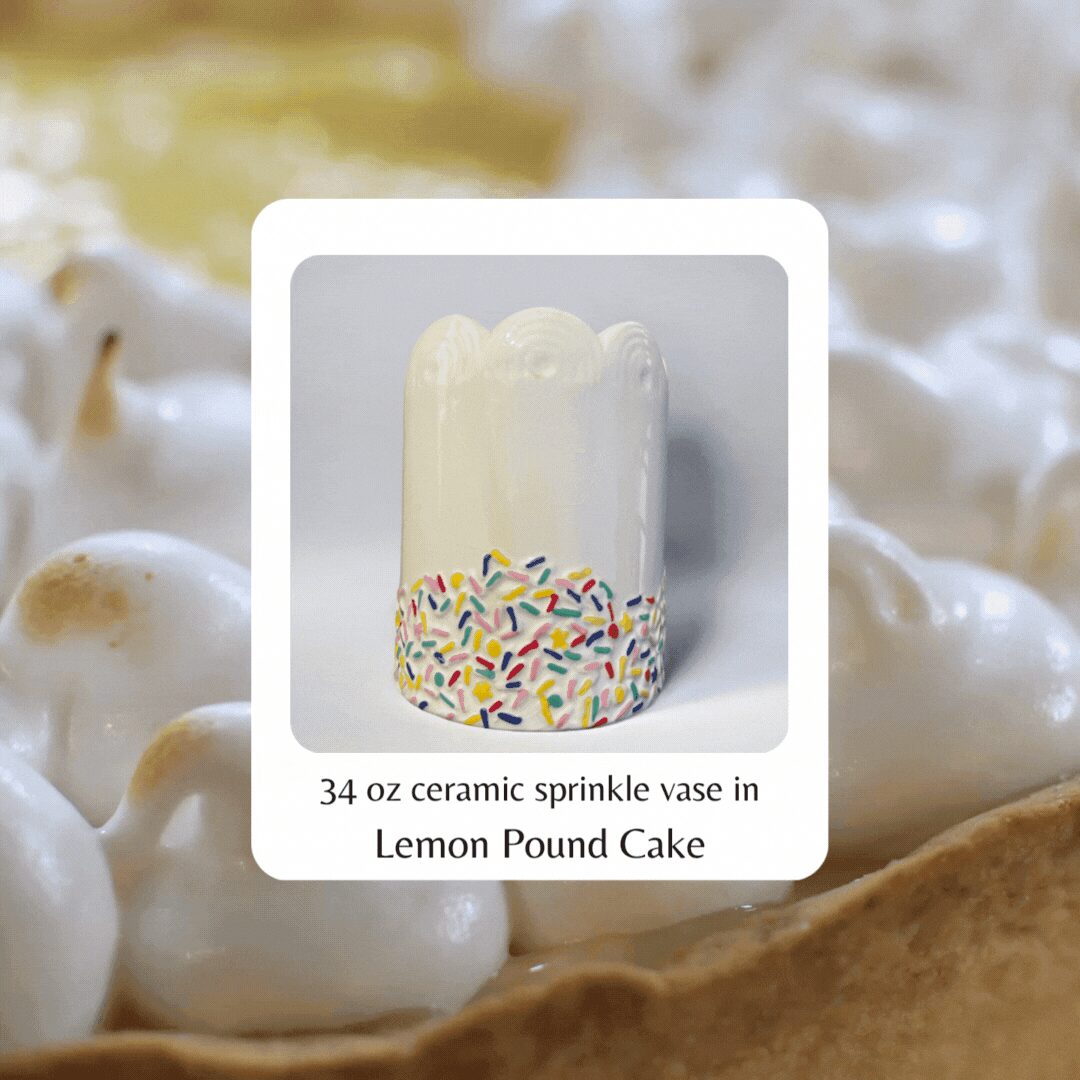
Image Credits
Kat Hanegraaf Photography














